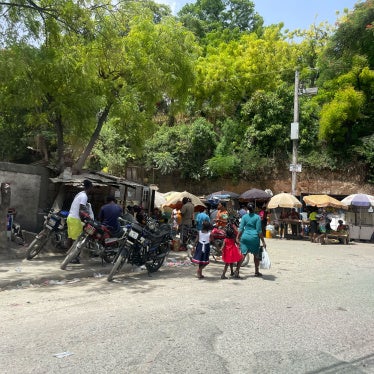(Toluca) – The vote by the Congress of the State of Mexico on November 25, 2024, to decriminalize abortion in all cases during the first 12 weeks of pregnancy is a significant step forward for reproductive rights in the country’s most populous state, Human Rights Watch said today.
Once enacted, the reform will remove all criminal penalties for abortion within the first trimester. It will align the State of Mexico with 18 other states in the country that have already decriminalized abortion following the landmark 2021 ruling by Mexico’s Supreme Court, which found the absolute criminalization of abortion unconstitutional.
“This decision is a critical victory for women, girls, and pregnant people in the State of Mexico,” said Marea Verde Edomex (Green Wave), the coalition of civil society organizations and activists that pushed for this change. “Decriminalizing abortion is an essential step toward respecting the right of women and girls to gender equality, allowing people to make informed decisions about their bodies, health, and futures.”
Fear of legal repercussions has long deterred healthcare providers in the State of Mexico from offering services and deterred patients from seeking abortion care. Under the previous law, abortion was only permitted in cases of rape, a threat to the woman’s life, “negligent abortions,” or “serious fetal anomalies” (sic). After the change goes into effect, abortion will remain criminalized after the first trimester, with the same exceptions.
“Abortion is a public health matter that should not be regulated through criminal law,” said Cristina Quijano Carrasco, women’s rights researcher at Human Rights Watch. “While the decriminalization of abortion during the first 12 weeks of gestation is a major step forward, the State of Mexico should work toward removing abortion entirely from the criminal code.”
The criminalization of abortion has disproportionally affected already marginalized groups, such as those living in conditions of poverty, adolescents, and people with disabilities, who often lack the resources, information, and support networks to navigate complex healthcare systems or legal barriers. These inequalities exacerbate long-standing barriers in access to reproductive health care and deepen existing social and economic disparities.
Healthcare workers interviewed by Human Rights Watch said that decriminalizing abortion will significantly improve access to abortion services by alleviating fears among pregnant people about seeking information or accessing care. It will also mitigate healthcare workers’ concerns about the risk of being criminally prosecuted when providing legal abortion care. If widely disseminated, this reform is also expected to help combat entrenched gender-based biases and societal stigma that often complicate access to reproductive health care.
Even in legally permissible cases, people needing abortion care have often struggled to access it. In an August 2024 report on access to abortion in the State of Mexico, Human Rights Watch found that barriers to abortion access remained widespread, even in cases in which abortion was legally permitted under the law.
Barriers included healthcare providers denying or delaying services, withholding necessary information, and questioning the veracity of sexual violence survivors’ statements. They also have restricted legal capacity for some pregnant people with disabilities, subjected women to mistreatment, and imposed arbitrary requirements for access that contradict existing law and regulations. As a result, many pregnant people still face significant obstacles when seeking reproductive health care.
Abortion services should be widely available, accessible, and provided without discrimination or delay. To expand access to abortion, authorities in the State of Mexico should address gaps in healthcare provider training, improve the dissemination of information about legal abortion services, and eliminate harmful biases and practices within the healthcare system, Human Rights Watch said.
“This landmark achievement would not have been possible without the tireless work of Mexico’s collectives, organizations, and activists,” Quijano Carrasco said. “The State of Mexico should continue to work alongside these groups to ensure that the decriminalization of abortion translates into tangible access to essential healthcare services for all those who need it.”









